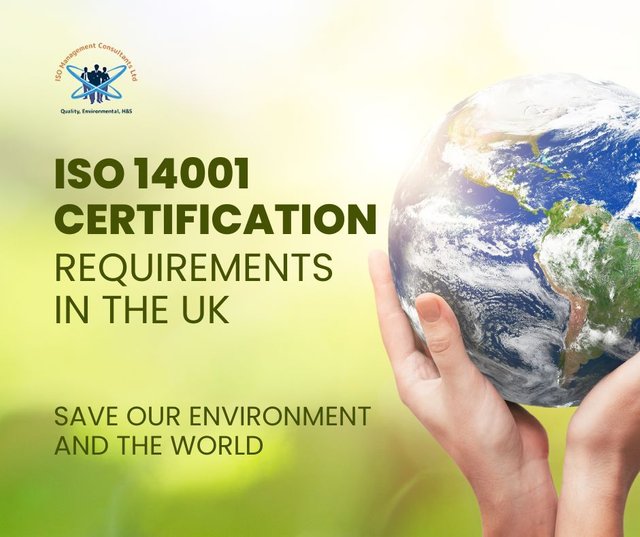
In today's rapidly evolving world, environmental consciousness and sustainability have become paramount concerns for businesses across the globe. The ISO 14001 certification stands as a testament to a company's commitment to reducing its environmental footprint and adopting ecologically responsible practices. This article delves into the ISO 14001 certification requirements in the UK, highlighting its significance and the steps businesses need to take to achieve this coveted accreditation.
Understanding ISO 14001 Certification:
ISO 14001 is an internationally recognized standard that provides a systematic framework for organizations to effectively manage and improve their environmental performance. It assists companies in identifying and addressing environmental impacts, conserving resources, and minimizing waste generation. By adhering to ISO 14001 guidelines, businesses demonstrate their dedication to not only complying with environmental regulations but also proactively seeking ways to enhance their environmental stewardship.
The Significance of ISO Accreditation:
ISO accreditation, which includes ISO 14001 certification, holds immense value in today's competitive business landscape. It signifies a company's commitment to environmental responsibility, which aligns with the growing consumer demand for eco-friendly products and services. Moreover, ISO accreditation can boost a company's reputation, enhance credibility, and open doors to new business opportunities.
ISO 14001 Certification Requirements in the UK:
Achieving ISO 14001 certification requires a systematic approach and adherence to specific criteria. While the exact process may vary from one certification body to another, the fundamental requirements remain consistent:
Environmental Policy: An organization must establish a comprehensive environmental policy that outlines its commitment to environmental protection, compliance with relevant laws, and continuous improvement.
Environmental Aspects and Impacts Assessment: Identifying the environmental aspects and impacts of the organization's activities, products, and services is crucial. This assessment helps in determining where significant environmental effects occur and where improvements can be made.
Legal and Regulatory Compliance: Businesses seeking ISO 14001 certification must ensure that they comply with all applicable environmental laws and regulations in the UK. This involves staying up-to-date with evolving legislation and ensuring full adherence.
Objectives and Targets: Setting measurable objectives and targets for improving environmental performance is a key requirement. These goals should be realistic and achievable, fostering a culture of continuous improvement within the organization.
Environmental Management Program: Developing a structured environmental management program outlines the actions necessary to achieve the established objectives and targets. This program should address various aspects, including resource management, waste reduction, and energy efficiency.
Resources and Training: Adequate resources, including personnel, technology, and training, must be allocated to support the implementation of the environmental management system effectively.
Monitoring and Measurement: Regularly monitoring and measuring the organization's environmental performance helps in tracking progress toward goals and identifying areas for improvement. This data-driven approach ensures transparency and accountability.
Internal Audits: Conducting internal audits evaluates the effectiveness of the environmental management system. These audits identify gaps, assess compliance, and contribute to the overall improvement process.
Management Review: Regular reviews by top management facilitate strategic decision-making and ensure that the environmental management system remains aligned with the organization's goals.
Conclusion: Navigating the Path to Sustainability
ISO 14001 certification serves as a beacon guiding businesses toward a more sustainable future. In the UK, adhering to the ISO 14001 certification requirements not only demonstrates a company's commitment to environmental stewardship but also positions it as a responsible player in the market. By achieving ISO accreditation, organizations can contribute to a greener world while reaping the benefits of enhanced reputation, credibility, and growth opportunities. As the global call for environmental responsibility grows louder, ISO 14001 certification stands as a clear and effective way for businesses in the UK to make a positive impact while securing their future success.